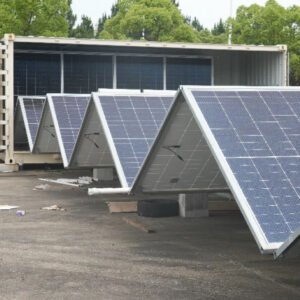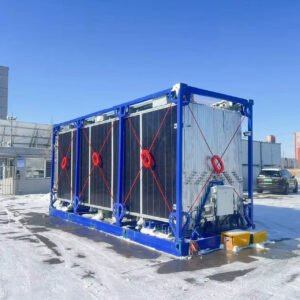How Distributors Choose Suitable Solar Water Pump Products?
•
How Distributors Choose Suitable Solar Water Pump Products?
Farmers and agricultural businesses often struggle to find the right solar water pump[^1] that meets their irrigation needs efficiently. What factors should distributors consider to ensure the best fit?
Distributors select solar water pump[^1]s by analyzing market demand, matching technical specifications[^2] to irrigation requirements[^3], and offering value-added services like system solutions and after-sales support.

Choosing the right solar water pump[^1] isn't just about the product—it's about understanding the ecosystem it serves. Let's explore how distributors make these critical decisions.
Market Demand: Common Working Conditions and Technical Matching for Agricultural Irrigation?
Ever wondered why some solar water pump[^1]s outperform others in the field? The secret lies in aligning technical specs with real-world irrigation needs.
Distributors assess local water sources, crop types, and terrain to match solar pumps with optimal lift capacity[^4], flow rate[^5], and durability, ensuring efficient irrigation under varying conditions.
Understanding Local Irrigation Needs
Solar water pumps must adapt to diverse environments. For instance:
- Water Source: Shallow wells vs. deep boreholes require different pump types.
- Crop Water Requirements: High-water-demand crops like rice need pumps with greater flow rate[^5]s.
- Terrain: Hilly areas demand pumps with higher lift capacity[^4].
| Factor | Consideration | Pump Specification |
|---|---|---|
| Water Source Depth | Shallow (<10m) or Deep (>50m) | Submersible vs. Surface Pump |
| Daily Water Demand | Crop type and acreage | Flow Rate (m³/hour) |
| Power Availability | Solar irradiation levels | PV Panel Capacity (W) |
Technical Matching for Efficiency
Distributors prioritize pumps that minimize energy waste. For example:
- Head and Flow Balance: Oversizing a pump increases costs, while undersizing leads to poor performance.
- Durability: Pumps in sandy areas need abrasion-resistant materials[^6].
By focusing on these aspects, distributors ensure farmers get reliable, cost-effective solutions tailored to their unique conditions.
High lift pumps work efficiently for shallow wells. False
High lift pumps are designed for deep wells; surface pumps suffice for shallow sources.
Product Portfolio: Selection Ideas for Pumps with Different Lift and Flow Rates?
How do distributors simplify the complex choice between various pump models for buyers?
Distributors categorize pumps by lift (head) and flow rate[^5], offering clear guidelines—like low-lift/high-flow for flood irrigation and high-lift/low-flow for drip systems—to match agricultural needs precisely.
Lift and Flow Rate Matrix
Here’s how distributors break down options:
-
Low Lift (0–20m), High Flow (>5m³/h)
- Ideal for: Surface water transfer, flood irrigation.
- Example: Centrifugal pumps for flat terrains.
-
Medium Lift (20–50m), Moderate Flow (2–5m³/h)
- Ideal for: Sprinkler systems, medium-depth wells.
- Example: Jet pumps with solar DC motors.
-
High Lift (>50m), Low Flow (<2m³/h)
- Ideal for: Drip irrigation, deep boreholes.
- Example: Submersible helical pumps.
Future-Proofing with Scalability
Smart distributors also consider:
- Modular Systems: Allowing farmers to expand capacity as needs grow.
- Hybrid Options: Solar-diesel pumps for areas with intermittent sunlight.
High-flow pumps are best for drip irrigation. False
Drip systems require precise, low-flow delivery to conserve water.
Value-Added Services: Providing Customers with Complete System Solutions and After-Sales Support?
Why do some solar pump suppliers stand out? It’s not just the product—it’s the end-to-end service that builds trust.
Leading distributors differentiate themselves by offering customized system designs, installation support[^7], and long-term maintenance packages, reducing downtime and maximizing pump lifespan for farmers.
Beyond the Pump: Holistic Solutions
Distributors add value through:
-
Pre-Sales Consulting
- Site assessments to determine solar potential and water needs.
- Financial planning (leasing options, payback period calculations).
-
Post-Sales Support
- Remote monitoring for performance tracking.
- Spare parts networks to minimize repair delays.
| Service | Benefit to Farmer |
|---|---|
| Free System Design | Ensures optimal pump configuration |
| Training Programs | Empowers users to troubleshoot minor issues |
| Warranty Extensions | Lowers long-term ownership costs |
Case Study: The Power of Maintenance Contracts
A distributor in Kenya reduced pump failures by 60% by offering annual service contracts, including:
- Panel cleaning to maintain efficiency.
- Battery checks for hybrid systems.
Remote monitoring can prevent pump failures. True
Real-time data alerts farmers to issues like low water levels or panel shading.
Conclusion
Distributors succeed by balancing technical expertise with customer-centric services—matching the right solar pump to irrigation demands while supporting farmers throughout the product lifecycle.
[^1]: Discover how flow rate impacts efficiency and effectiveness in irrigation systems.
[^2]: Find out why abrasion-resistant materials are vital for pump durability in sandy environments.
[^3]: Learn how installation support can enhance pump performance and longevity.




